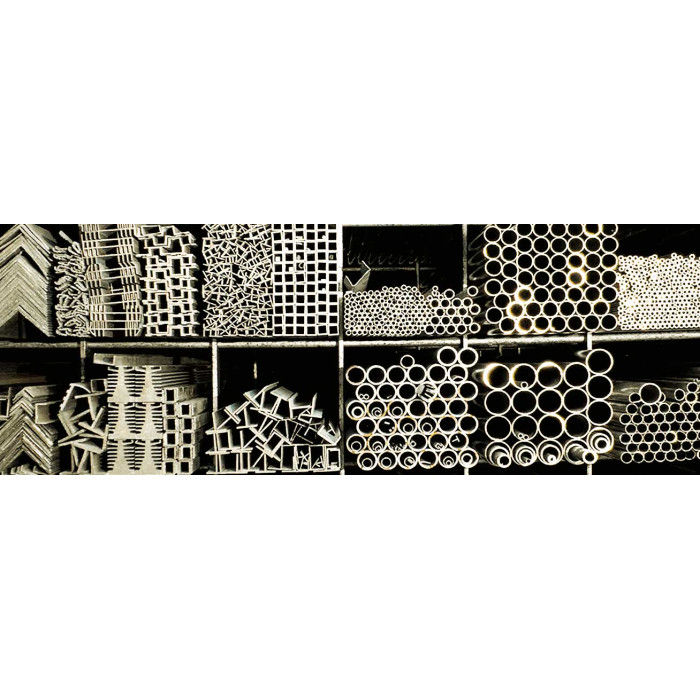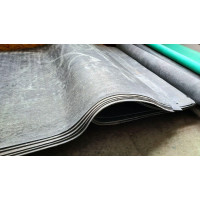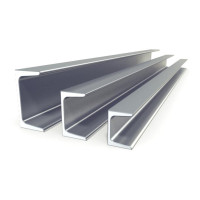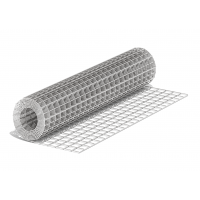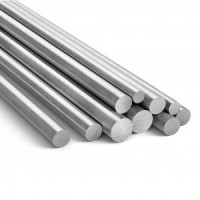Nizhyn metal base - steel sheet, pipe, circle, wire, mesh, strip, hexagon, perforated sheet, tape, square, channel, corner, I-beam cutting and delivery
The name "black metal" is directly related to the physical properties of iron. For ferrous metallurgy, iron remains a very important material - the main one. Ferrous metallurgy plants produce:
ferroalloys;
various grades of steel;
cast iron with different properties.
The composition of these metals, in addition to iron, which forms the basis, also includes:
manganese;
carbon;
copper;
nickel;
molybdenum;
arsenic;
chromium;
sulfur (desulfurization is carried out - sulfur is mainly removed);
silicon;
phosphorus.
Such elements make it possible to improve the quality of ferroalloys. Metals acquire increased resistance to corrosion, become more elastic, and improve their malleability.
Varieties of black metal
Various technologies and types of production of such metals are being developed. There are several main varieties of ferrous metal products.
Rolled sheet
It is produced in the form:
sheets;
stripes;
rolls;
strips.
Sheets of hot rolled metal are usually divided into the following types:
thin (up to 4 mm thick);
thick (exceeding a thickness of 4 mm).
Such products have a sheet format, and are also produced in the form of rolled metal strips and rolls. Cold-rolled and hot-rolled sheets are offered on the market. There are galvanized and pure steel products.
Cold rolled sheet metal
Its thickness is determined in accordance with the requirements of GOST 19904-90.
High-quality metal-roll simple black
This product is offered as:
circles;
fittings;
wire rod;
squares;
stripes.
Construction fittings
The use of building reinforcement: characteristics, classification
Reinforced concrete products are reinforced with this metal. Moreover, both ordinary products, and with prestressing. Reinforcement is also used to create frames for monolithic structures. At metallurgical plants, fittings are produced:
wire (cold-drawn);
rod (hot rolled).
It is necessary to use reinforcement for concrete goods:
non-stressed;
tense.
The reinforcement has two types of profiles:
smooth (belongs to class A1);
periodic (belongs to classes A2-A6).
The length of the products is 6-12 m, and the diameter is 0.6-8 cm, depending on the class.
For the manufacture of fittings, carbon or low-alloy steel is used. These compounds stand out:
resistance to corrosion;
special strength.
steel circle
The steel circle has a round section. The product is rod-shaped. This rolled metal is a blank that is used for the manufacture of pipes, parts for mechanical engineering.
Steel circles of different diameters are produced - a minimum of 0.5 cm, a maximum of 27 cm. The circle can be made of steel of several varieties. This is both ordinary carbon steel and steel of special grades. The plain steel wheel can reach a length of 2-12 m, while the high-alloy steel material is available in a length of 1-6 m.
H/c hexagon (square hot/c)
The marked steel products have face sizes of 6.3-20 cm. Such rolled metal is produced in lengths of 2-6 m. In the production of steel hexagons, various suitable steel grades are used. Manufacture of steel hexagons:
normal accuracy (marking B);
high accuracy (marking B).
Hexagon steel 45
The steel hexagon has equal edges, and a diameter of 0.8-10 cm. Steel hexagons are made:
hot-rolled;
forged;
calibrated.
These products are divided by chemical composition, the value of the additive to steel is noted. So, high-quality and high-quality hexagons are distinguished.
Beam
This product must have maximum strength and maximum weight. Such metal products are used in the construction of buildings and bridges. Used as overlays.
There are two types of beams:
T-shaped (they are also called single-tee);
H-shaped (the so-called I-beam).
These products of standard production are produced in lengths of 4-12 m. The defining size of the beam is taken into account. This is the distance that is formed between the edges of the outer shelves of this material. For example, "beam 24M". Here 24 cm is the length of the segment that is measured between the edges of the outer shelves.
Wire rod
This is the name of the metal of the hot roller. It is produced from:
grids;
wires;
gratings.
rails
Release rails:
tram;
railway;
crane.
This is a kind of high-quality black metal.
Shaped steel
For such products, the cross section is intersected by a tangent at least at one point. Varieties of this black metal can be considered:
special purpose profile;
corner;
channel.
steel channel
The channel has a number, which indicates its height in centimeters. The length of the channel is standard - 2-12 m.
Pipe rolling
Among the most common rolled ferrous metal, pipes stand out:
cast iron;
steel;
welded;
seamless.
Stainless steel
Structures and individual products are made of high quality stainless steel. This is a variety of products including:
sheets;
pipes;
grids;
wire, etc.
All designated products have an essential property: they do not rust.
Rolled ferrous metals are products that no branch of the national economy can do without. This product is especially in demand:
during the construction of any objects;
for the aviation industry;
for mechanical engineering;
for shipbuilding;
in the automotive industry.
Rolled metal in construction
All houses, structures and other facilities are built using steel and cast iron products. You will need to use beams to build columns, multi-storey floor slabs, bridges, or piers.
rebar frame
Concrete building structures are not currently used without reinforcement. Only with reinforcing frames is it possible to create reinforced concrete products that are sufficiently durable and strong. But for this purpose, not only reinforcing bars are used, but also a channel.
During the construction of pipelines, it is impossible to find a replacement for metal. Through such pipes they move under pressure and in huge volumes:
gas;
water;
oil;
artificial chemicals.
The main water and gas pipelines are made of metal pipes. Such pipes are used for the manufacture of sewer systems, heat supply routes, chimneys, and treatment facilities. A full-fledged residential building or office space cannot be imagined without the presence of pipes. In huge quantities, pipes pass through the territories of factories, factories, and individual industrial workshops.
Black rolled products are widely used in modern industry, agriculture, construction, oil industry and automotive industry. Products are manufactured by rolling certain types of metal.
How is black metal rolled used?
Iron, cast iron, steel and other alloys are used as raw materials for the manufacture of black rolled metal. Depending on the materials that are part of such rolled metal, products from it can be divided into three categories:
products from various steel alloys;
high-strength, malleable or gray cast iron parts;
made of alloyed (ferroalloy) steel alloys.
Where is rolled metal used?
The scope of ferrous metal rolling is very extensive. It is used to produce:
channels;
beams;
corners;
pipes;
rails;
fittings.
In some cases, ferrous rolled metal products can be used for the manufacture of car and car bodies.
What metal rolling is most in demand?
Currently, the most popular is round-shaped rolled metal, which is metal rods with a cross-sectional diameter of 5-250 mm. Such products are used for the construction of building elements and structures, due to the increased strength and durability of products.
Another popular type of rolled metal is square rolled metal, the height of which varies between 6-200 mm. Similar products are used for the industrial production of high-precision structures.
A wide variety of technologies are used in the production of black rolled metal products. The technique of hot or cold rolling is applied on special rolling equipment. Cold-rolled products are notable for their low thickness and high quality of the surface layer. Hot-rolled products are characterized by low tensile strength.
Based on the chosen manufacturing method, there are such types of rolled metal products as:
sheet;
pipe;
shaped;
varietal.
Steel sheets are used in many industries: railways, automobiles and in building construction. Many tools and parts that require increased strength are made of steel.
No questions about this product, be the first and ask your question.

